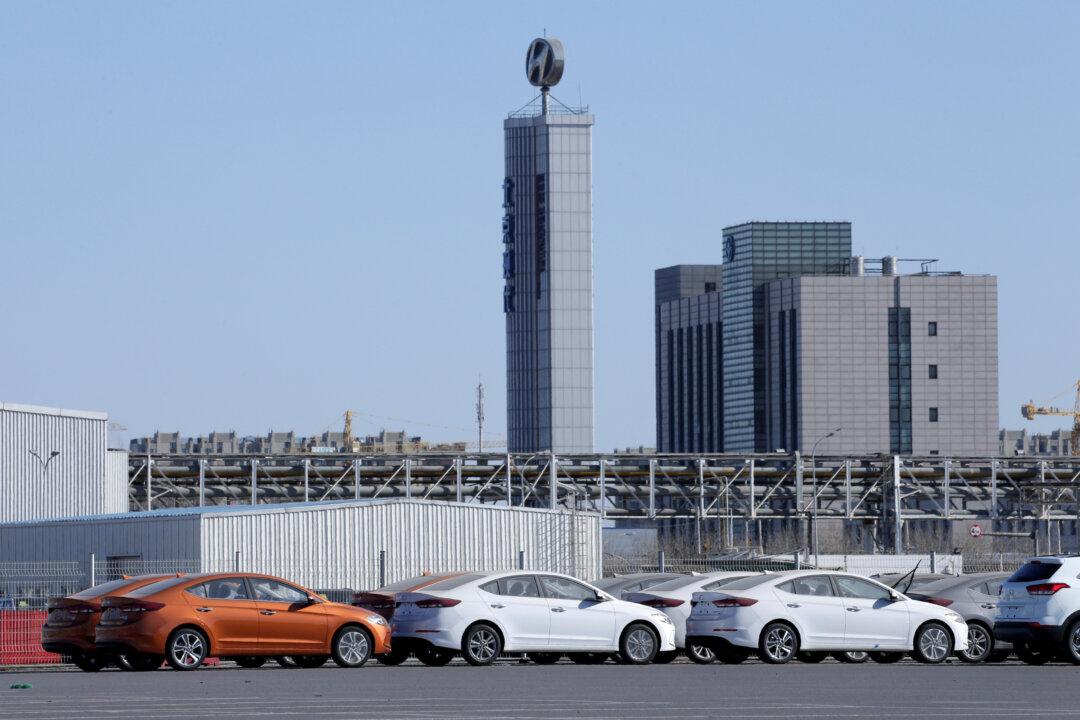SEOUL—Hyundai Motor Co. is considering plans to suspend production at its oldest plant in China, the South Korean carmaker said March 6 as it reels from tumbling sales and massive overcapacity in its biggest market—factors caused by China’s weakening economy.
The move by Hyundai, which, together with affiliate Kia Motors, was the No. 3 automaker in China until 2016, highlights the reversal of fortunes of China’s auto industry.





